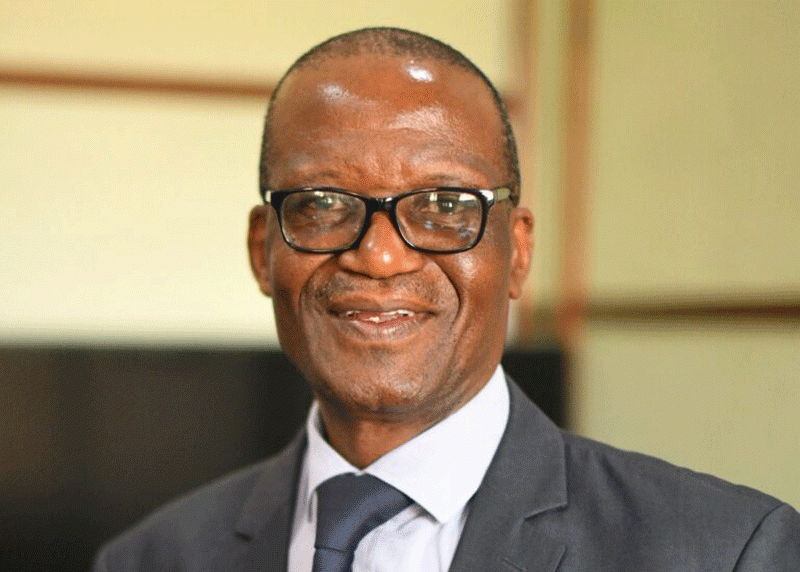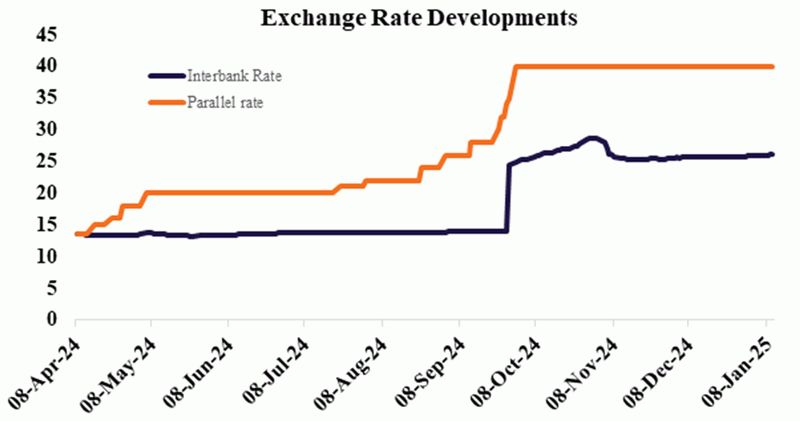
After a new industrial report said the manufacturing sector’s contribution to gross domestic product has declined by big margins in 44 years, our senior reporter Freeman Makopa caught up with Industry and Commerce minister Mangaliso Ndlovu (MN) to understand how he plans to stem the haemorrhage. Ndlovu recently returned to the ministry where it started for him when he joined the government six years ago. Find below how their discussion turned out …
FM: Tell us your vision for the ministry.
MN: Thank you for giving me this opportunity. Let me start by highlighting that my ministry’s mandate is to promote the development of vibrant, sustainable, and globally competitive industrial and commercial enterprises. This is achieved through the provision of enabling policy and regulatory frameworks.
The industrial sector is one of the strategic anchors towards the attainment of an Upper Middle-Income Economy by 2030. To steer up the industrialisation and commercial agenda, we will continue to implement robust policies that create a supportive environment for businesses to operate. We will do this through the Whole of Government Approach.
We are also actively engaging with industry leaders, stakeholders, and entrepreneurs to identify challenges and craft solutions that propel the industrial sector forward.
FM: You have been in government for long now, what is your secret?
MN: It is now six years since I came into government. During this period, I have had the opportunity to assume two different portfolios.
Initially, I started with this ministry, before I moved to the then Ministry of Environment, Climate, Tourism and Hospitality Industry and later to the Ministry of Environment, Climate and Wildlife after it was separated from Tourism. I am now back with the Ministry of Industry and Commerce where it all started.
- Chamisa under fire over US$120K donation
- Mavhunga puts DeMbare into Chibuku quarterfinals
- Pension funds bet on Cabora Bassa oilfields
- Councils defy govt fire tender directive
Keep Reading
Let me say I have served and continue to serve at the pleasure of my boss, the President of the Republic of Zimbabwe Cde Dr ED Mnangagwa. It has been a great honour for me to be given this rare opportunity by the President to serve my beloved country. I don’t ever take it for granted.
I have tried to perform to the best of my ability. But of course, I am not the one to assess if that is good enough.
FM: Tell us more about what you are doing.
MN: We have the Zimbabwe National Industrial Policy Framework, (which is currently under review), the Local Content Strategy and sector specific strategies. These are being complemented by some of our programmes, including the rural industrialisation thrust, promotion of standards and quality assurance, economic empowerment initiatives, consumer protection, investment, export development and recommendations for fiscal support.
Our thrust is to ensure we resuscitate strategic and anchor companies, promote expansions of existing and creation of new firms.
FM: We have seen an influx of cheap imported products, but industries have been clamouring for the consumption of domestic products?
MN: It is true that imported goods have a presence in our market. However, we are committed to fostering a thriving domestic industry. We are implementing the Local Content Strategy, working closely with the Buy Zimbabwe Campaign.
The Local Content Strategy aims to encourage the utilisation of local resources and services in production. With Buy Zimbabwe Campaign, we are looking at promoting production and consumption.
FM: What is the current state of affairs?
MN: The shelf space occupancy of locally produced goods vis-à-vis imported products, now stands at 80%, a 45% increase from 53% realised in 2018. We have also taken a deliberate move to engage government ministries, departments and agencies to procure locally in the sectors where we have local capacity.
We acknowledge that we operate in a global village and we also want our products to penetrate foreign markets, as such, we need to strike a healthy balance. Our focus will be on improving our competitiveness by addressing cost drivers. This will reduce the cost of production and the prices of our products.
FM: Part of your mandate is to resuscitate closed or ailing companies. How do you intend to achieve that?
MN: We need to appreciate the legacy of sanctions in our country. In my view, the biggest casualty was our industrial sector. And it was deliberate.
It is generally through modernising and industrialising that a country accelerates its transition to an upper middle-income society. That is why our anchor sectors and companies like Ziscosteel, the Industrial Development Corporation were targeted.
We, therefore, must defeat the sanctions. This will include establishing new industries and reviving those that have the potential to succeed.
On the how part, I must say this question came a bit too early because I intend to do massive consultations on several issues. But briefly, we are taking a multi-pronged approach, focusing on strong collaborations with the private sector.
We are working closely with other ministries and government departments, recommending appropriate fiscal support, facilitating targeted support to struggling companies, and promoting economic empowerment initiatives and quality assurances.
With these initiatives, we are now seeing some of these companies coming back on their feet. David Whitehead will be fully operating before the end of the third quarter.
FM: Are you encouraging industrialists to go green?
MN: Power is one of the key enablers in industries and energy security becomes a key factor. The government, through the Treasury, has taken a step ahead by removal of duty on the importation of solar equipment, which is a viable alternative to electricity.
We also see several independent power producers in the establishment of solar energy parks. We have a role in promoting the implementation of green industry initiatives. Through this, we have been encouraging companies to use solar energy in their production processes.
FM: Tell us about your work at IDC.
MN: The IDC has been transferred to Mutapa Investment Fund. At the moment, it is being administered under that institution.
FM: Where is Zimbabwe in terms of integration into the Africa Continental Free Trade Area (AfCFTA)
MN: AfCFTA is set to become the world's largest free trade area, covering all 54 members of the African Union. We signed and ratified (it). There are immense benefits to accrue through AfCFTA, including an enlarged market of over 1,3 billion people, improved trade and investment, improved production efficiency, and wider choice of products for consumers.
We have not yet started benefitting from the experimental phase, which is the Guided Trade Initiative.
Our tariff offer is still in its finalisation stage as well as our National Implementation Strategy. We are committed to participating fully in rolling out AfCFTA so that we can benefit from this expanded market.
FM: How is the government dealing with basic commodity price hikes? Consumers are suffering.
MN: The government continues to implement a raft of measures including monetary and fiscal policies to address macroeconomic fundamentals.
I wish to acknowledge the work being done by the Reserve Bank of Zimbabwe governor in his quest to manage inflation through monetary policy discipline.
As you know, it is through the monetary policy that the government ordinarily deals with inflation. It will be misdirected efforts to expect that at my level I have to go to the people hiking prices. If there are some attempts to sabotage the economy, then we explore appropriate measures to get them in line.
Having said that, it is important to also highlight that we administer the Consumer Protection Act and this is being operationalised through the Consumer Protection Commission. The aim is to protect and promote the consumer’s interests and we normally undertake weekly consumer price surveys across the country.
FM: Where does the potential for growth lie?
MN: There is great potential that lies in our industrial sector and this is only achievable if the industry continues to improve its manufacturing techniques through retooling, focusing on high-value goods, investing in innovation, and research.
There is also great potential to promote value addition and beneficiation industries through rural industrialisation.











